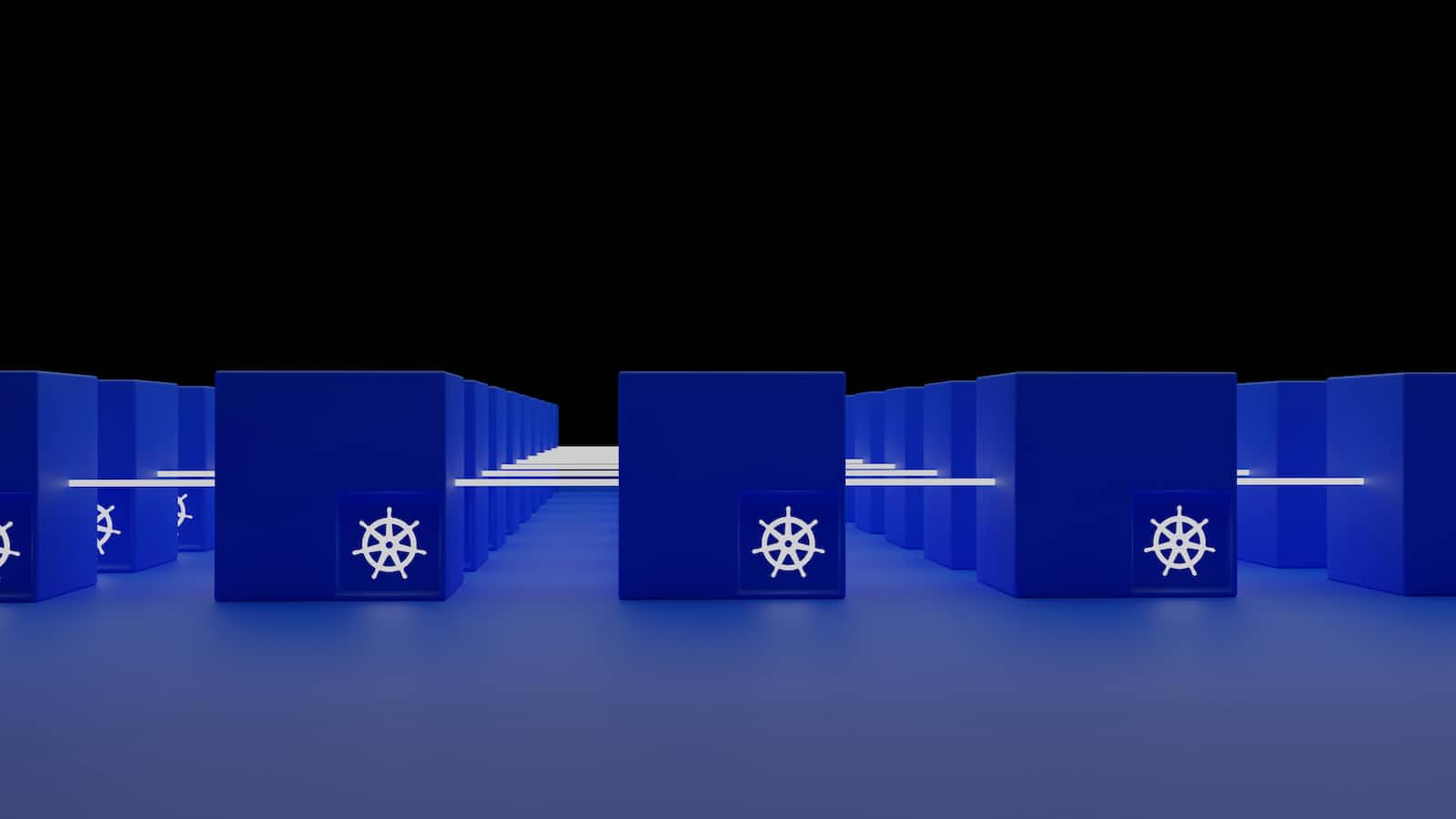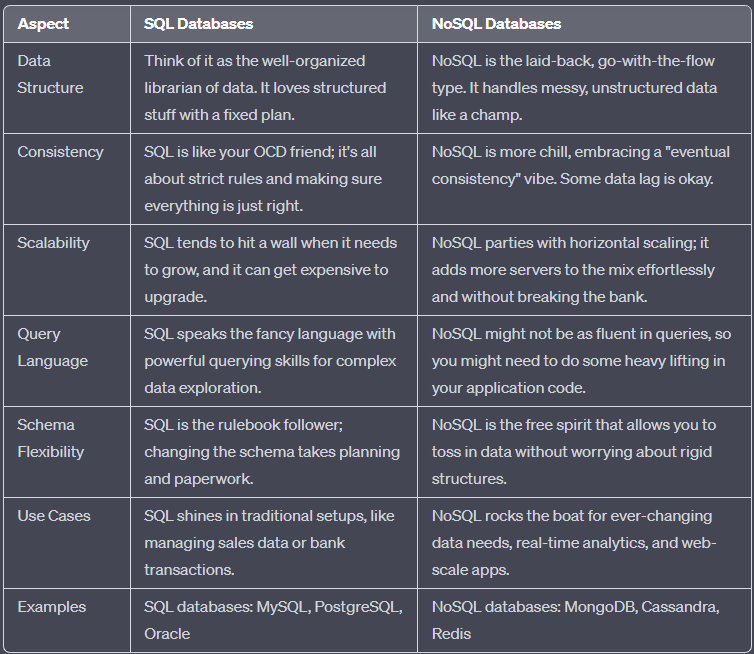SQL vs. NoSQL: The Beginner's Guide
 Gaurav Pandey
Gaurav Pandey
Hiiii peeps This is not a very technical blog I've written it in such a way that a newbie to this can understand it with daily life examples, Have a happy read.
Introduction:
Alright, folks, gather 'round! Today, we're diving into the world of databases, where we've got two big contenders: SQL (Structured Query Language) and NoSQL (Not Only SQL). These are like the Batman and Superman of databases, each with its strengths and quirks. In this blog post, we're going to break down SQL and NoSQL, talk about what makes them tick, and help you figure out which one suits your project best.
SQL Databases (Structured Query Language): SQL databases are like organized librarians; they love structured data with strict schemas, ensuring data integrity and reliability.
SQL Databases:
The Good Stuff:
ACID Compliance: SQL databases are the uptight guardians of data integrity. They're all about ACID – Atomicity, Consistency, Isolation, and Durability. If you need rock-solid data integrity (think banks and e-commerce), SQL's got your back.
Data Integrity and Validation: SQL databases are like the bouncers at a club; they check IDs and keep the riff-raff out. They enforce data integrity and ensure that only the right data gets in.
The Not-So-Good Stuff:
Scalability Challenges: SQL databases can be a bit like a sports car in traffic. They can struggle with heavy traffic (a.k.a., high volumes of data or lots of users) and scaling up can be a bit of a headache.
Fixed Schema: SQL databases are like a neat freak who hates change. Once you set up a schema, making changes can be a pain and disrupt your whole operation.
NoSQL Databases (Not Only SQL): NoSQL databases are the laid-back, free spirits of data storage, handling unstructured or semi-structured data with flexibility and scalability in mind.
NoSQL Databases:
The Good Stuff:
Flexibility and Schema-less Design: NoSQL databases are the hippies of the database world. They don't care about structure and are super chill with data changes on the fly.
Scalability: NoSQL is the party animal that loves to grow. Scaling horizontally (adding more servers) is a breeze, making it great for handling massive data and traffic.
The Not-So-Good Stuff:
Lack of ACID Compliance: NoSQL databases are like your adventurous friend; they might bend the rules a bit for performance. If you need strict data consistency, they might not be your best bet.
Limited Query Capabilities: NoSQL isn't the best at answering complex questions. You might have to do some extra work in your application to fetch the data you need.
Comparison Time:
Now, let's sum it all up, head-to-head:
Data Structure: SQL is like a filing cabinet; neat and organized. NoSQL is more like a messy desk; things can be scattered.
Consistency: SQL is a rulebook follower; NoSQL is more like "it'll get there eventually."
Scalability: SQL can be like a stubborn old car; NoSQL loves to party and grow.
Query Language: SQL speaks fluent query; NoSQL might need some help from your app.
Schema Flexibility: SQL wants everything planned; NoSQL is all about flexibility.
Use Cases: SQL is your dependable suit for traditional data. NoSQL is your go-to for the wild west of data needs.
Examples: SQL databases: MySQL, PostgreSQL, Oracle. NoSQL databases: MongoDB, Cassandra, Redis.
Here is a tabular 1 vs 1 comparison for ease.

In the end, it's all about your project's needs. So, whether you're team SQL or team NoSQL, choose the database that vibes with your data style.
Subscribe to my newsletter
Read articles from Gaurav Pandey directly inside your inbox. Subscribe to the newsletter, and don't miss out.
Written by

Gaurav Pandey
Gaurav Pandey
Hii Folks, I am a developer and Tech Writer, currently in my student phase of life. I am in my Final year of bachelors and am exploring writting with learning.